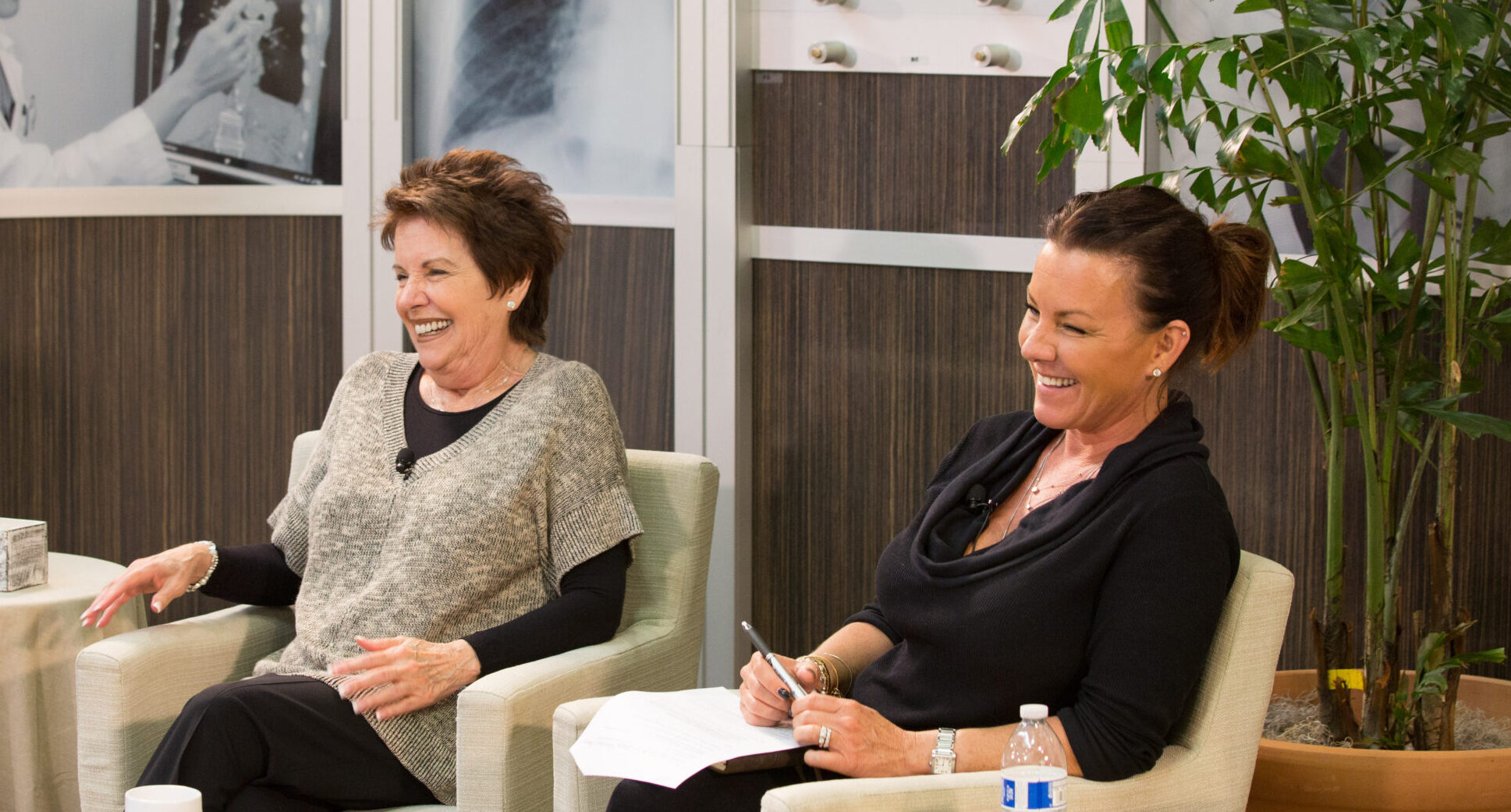
GO2 for Lung Cancer Chief Patient Officer Danielle Hicks has been on the front lines confronting lung cancer for very personal reasons. With a family history of lung cancer spanning 3 generations, she is helping unlock the origins of the disease by enrolling in a study looking at lung cancer risk in families.
The study, called INHERIT, builds on past research identifying one specific mutation linked to lung cancer. Spearheaded by GO2 for Lung Cancer, Dana-Farber Cancer Institute, and the Addario Lung Cancer Medical Institute (ALCMI), GO2’s medical consortium, this landmark study will look at identifying multiple mutations to discover the genetic risk of lung cancer and will include significantly more people.
We talked to Hicks about her family history, why she enrolled in the study, and its potential impact on the lung cancer community.
Tell us about your family and lung cancer.
I have a long family history of lung cancer, all on the maternal side of my family. My great-grandfather, grandmother, great-aunt, and great-uncle all passed away from lung cancer. My mother was diagnosed and is the only one who survived the disease.
What impact has that had?
The impact on me is huge. With my mom’s diagnosis in 2003 came a flurry of panicked emotions and not a lot of hope. She was given up to 6 months to live and told to get her affairs in order. One of the things my mom swore when she first received her diagnosis was that if she made it out the other side and beat her cancer, she was going to see to it that every person diagnosed after her had access to quality educational materials, proper support, and a community to turn to whenever there was a need. That is when we created the Bonnie J. Addario Lung Cancer Foundation, which is now GO2 for Lung Cancer, following a merger with another advocacy group, Lung Cancer Alliance.
Part of our approach to supporting the lung cancer community is to engage in patient-driven research to find cures. That is what makes the INHERIT study so critical – it will look at families like mine to understand who is at risk for lung cancer, which is essential for future screening and prevention research.
Why did you decide to enroll in the study?
Because of my strong family history, I knew I wanted to enroll to give back to science and contribute to potential discoveries that could help millions of people every year. We would not be anywhere near where we are today in finding and treating lung cancer were it not for the countless people who have participated in research studies.
Why do you think INHERIT research is so vital for people who will be diagnosed with lung cancer in the future?
I am extremely passionate about the INHERIT study because it aims to uncover a genetic or inherited aspect to developing the disease. Today, most people do not find out they have lung cancer until the disease causes symptoms and has progressed to late stages when the chance for survival significantly drops.
Current early detection/screening options are only approved for people who have a significant smoking history of 20 pack years, which is:
- 1 pack a day for 20 years, or
- 2 packs a day for 10 years
In the 16 years I have been working in lung cancer advocacy, I have encountered thousands of people who never smoked. So, how did they get lung cancer?
Suppose we can find a genetic cause for developing the disease. Then, we can hopefully widen the screening criteria to include people who have a strong family history, regardless of their smoking history. If people have access to screenings early, they have a higher chance of finding it when it’s curable.
I also have 3 children and 3 grandchildren to think about, not to mention siblings, cousins, and nieces. This study has the potential to break the cycle of a late-stage lung cancer diagnosis that has run rampant in my family for decades.
Do you have a family history of lung cancer like Hicks? If so, you may be able to help us discover the origins of inherited lung cancer.
Learn more about the INHERIT study.

Leave A Comment